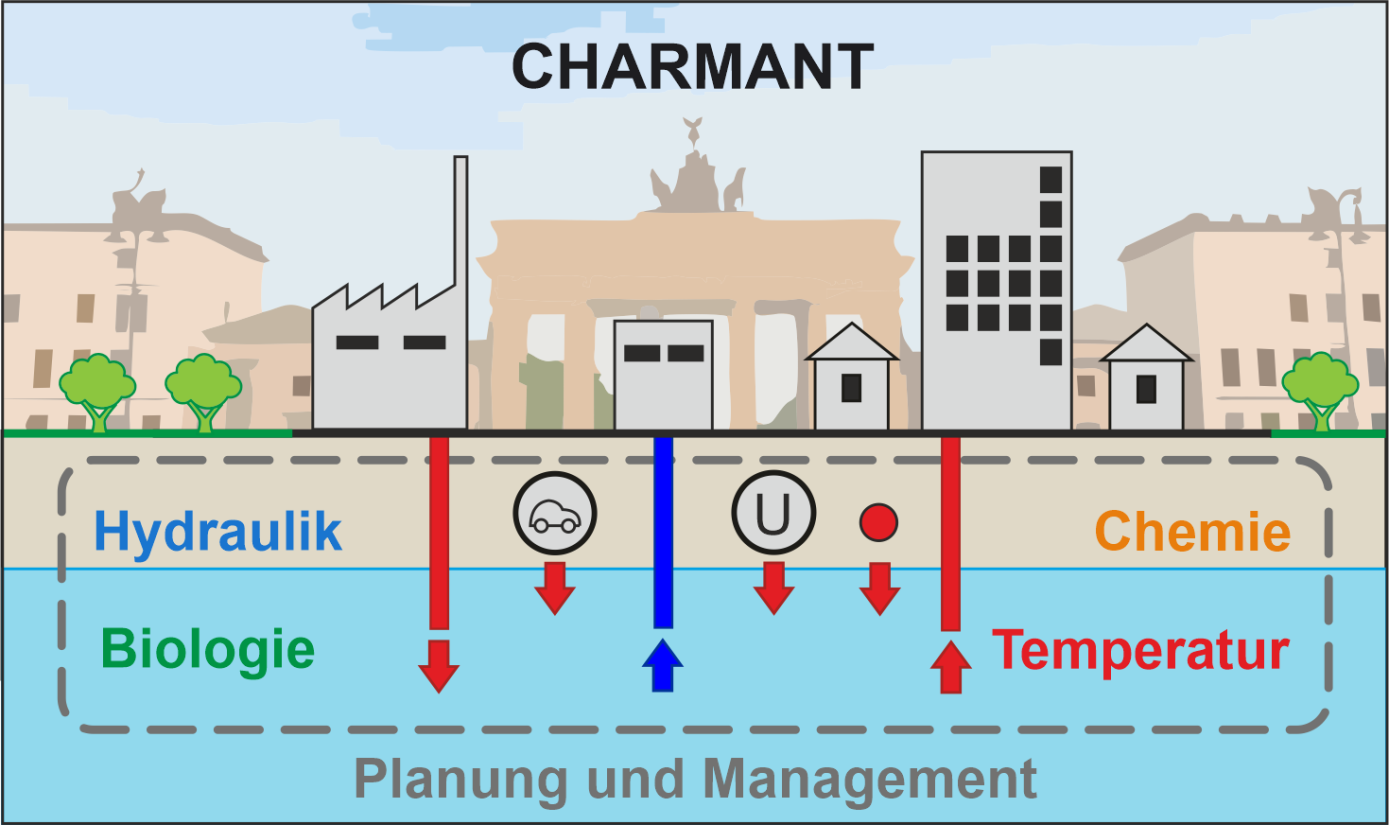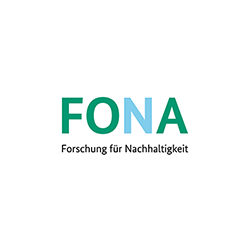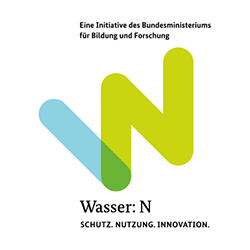Characterization, assessment and management of urban aquifers
Brief description
The aim of the CHARMANT project is to develop a method for integrative groundwater management and planning of groundwater use in urban areas taking into account thermal influences on the groundwater ecosystem. While the ecosystem services of groundwater fauna are important for groundwater quality, there are no ecological assessment or modeling approaches that take into account urban stress factors (e.g. thermal influences due to geothermal use of the subsurface). Based on long-term data sets, methods for holistic site characterization, a novel multi-scale model approach and ecological assessment approaches considering thermal, hydraulic, chemical and biological (THCB) processes in groundwater are developed using the example of Berlin. Due to its diverse hydrogeological conditions, Berlin offers the opportunity to analyze conflict areas of groundwater use and protection in a highly urbanized area.
This will be supported by the development of an automated monitoring concept for the dynamic conditions in urban groundwater and its integration into digital monitoring systems. Taking into account aspects of spatial and environmental planning, a procedure for sustainable groundwater management will be developed, which will include digital applications, online monitoring networks and recommendations for action. The method will be validated by applying it to realistic problems in Berlin and Karlsruhe. The development of the method will be accompanied by environmental communication activities in order to sensitize citizens for the groundwater ecosystem and to involve them in decision-making and planning processes.
Objectives
The overall objective of CHARMANT is the development of a procedure that enables an integrative groundwater management and the planning of hydraulic and thermal groundwater uses for the complex conditions in urban areas while preserving the ecosystem services. As a basis for this, methods are being developed that enable the recording and evaluation of parameters important for various issues and thus a spatially and temporally highly resolved characterization of dynamic aquifers.

In addition, a process-based modeling tool will be created that, based on these data, will allow the simulation of thermal-hydraulic, chemical and biological changes in groundwater at different, spatio-temporal scales. In order to integrate the ecological status of urban aquifers with regard to groundwater fauna and microbiology into such a procedure, existing multi-criteria assessment approaches will also be adapted to the dynamic and urban-stressed conditions, further developed and validated.


